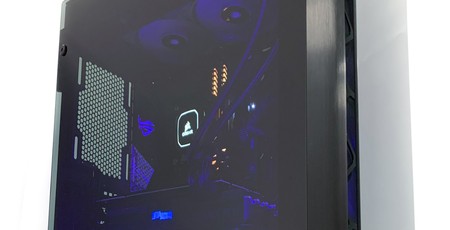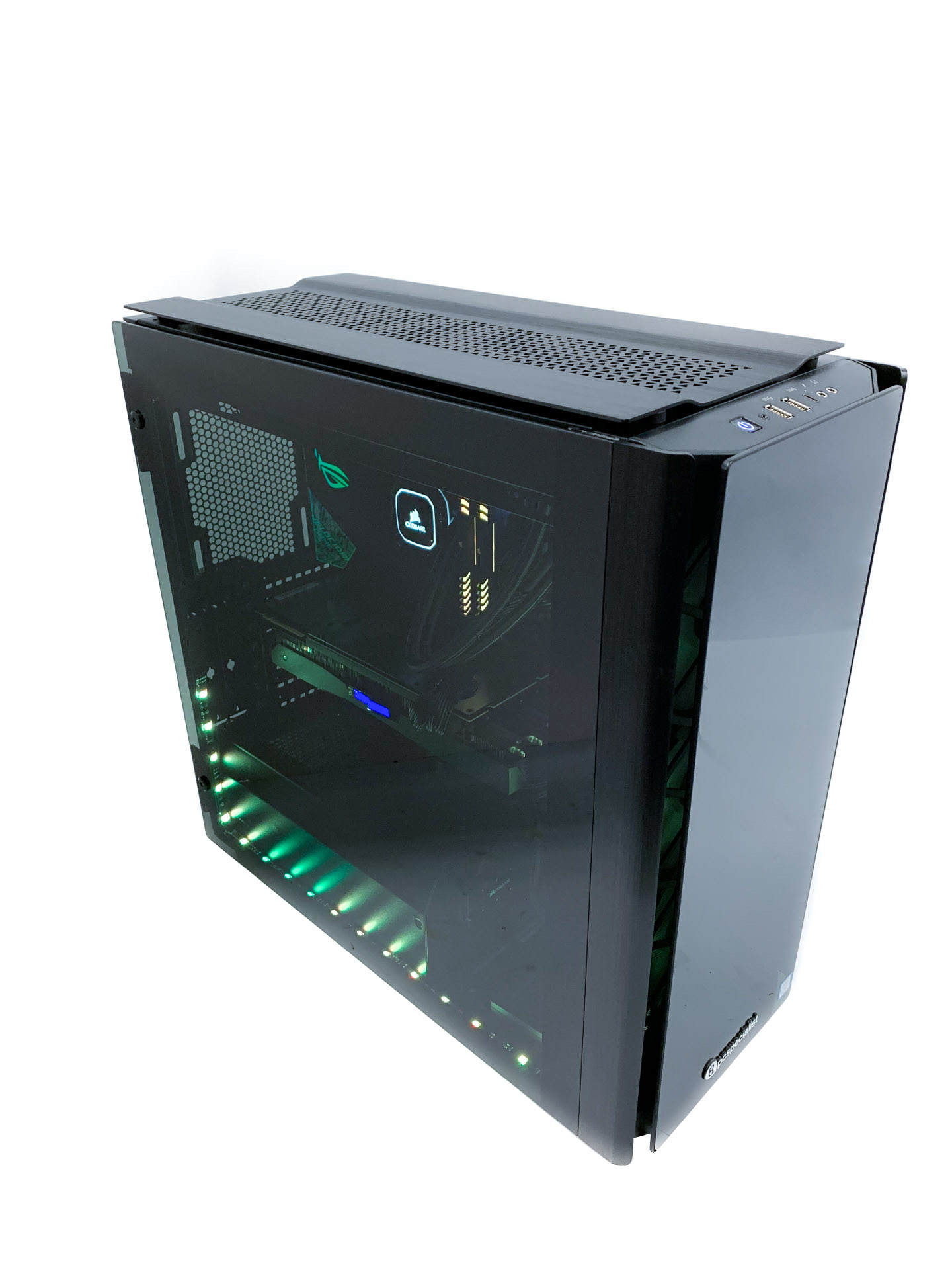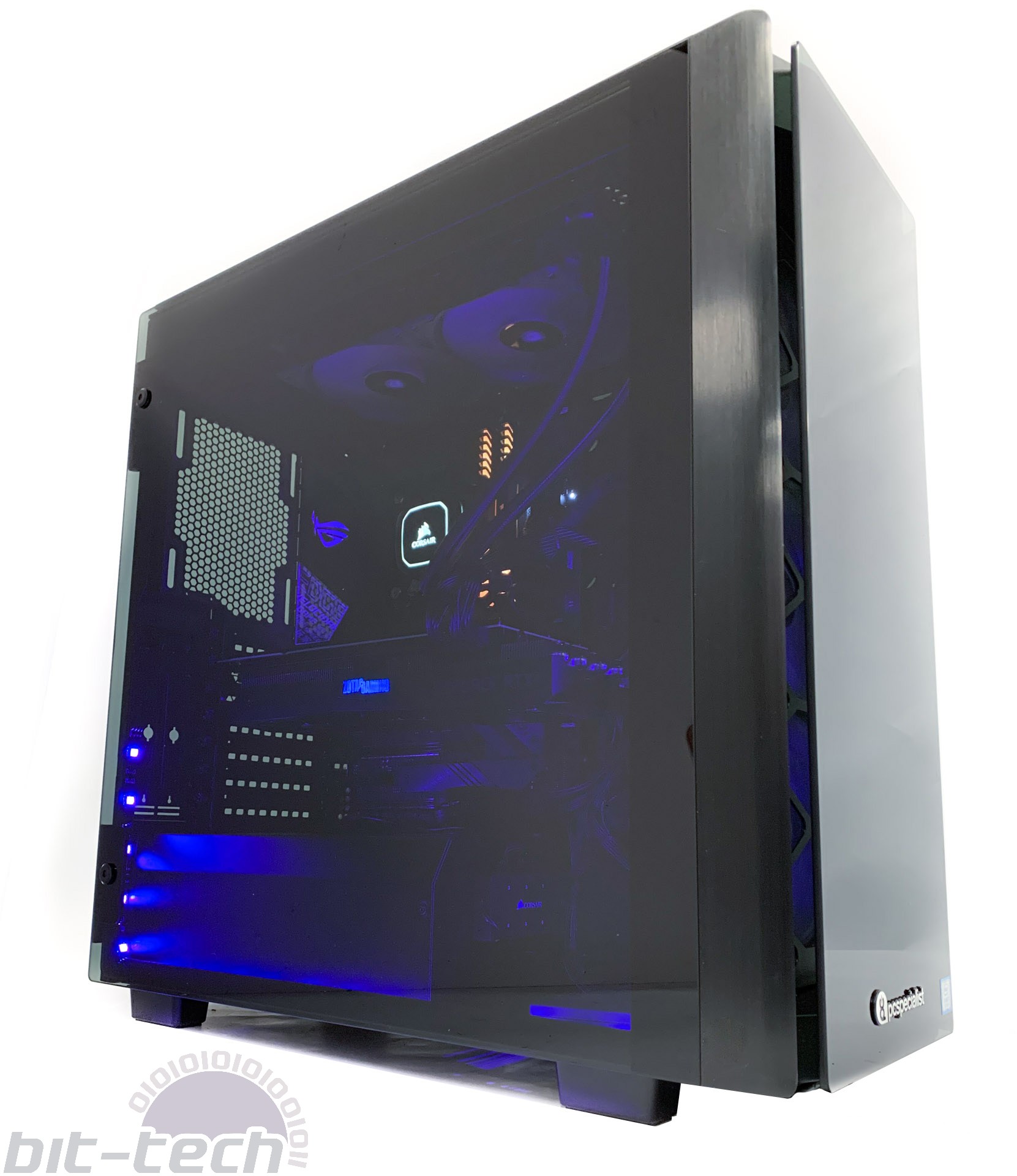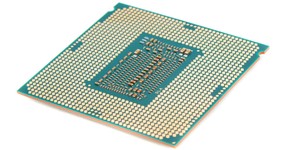PC Specialist Vortex Ultima R Review
January 30, 2019 | 14:30
Companies: #intel #nvidia #pc-specialist

Performance Analysis
As the first RTX 2080 Ti system to be put through its paces in our lab, we expected the PC Specialist Vortex Ultima R to top plenty of graphs, and we weren't disappointed. It had monstrous leads in Deus Ex at both 4K and 1440p, outstripping the RTX 2080-equipped Cyberpower PC Infinity X99 RTX by significant margins at both resolutions, reaching minimum frame rates of 41fps and 71fps respectively. It's a tough game to run despite its age, and this is the first system to top 40fps minimum and 50fps average at 4K too.

The difference was less significant in 3DMark Fire Strike, and the same was true in Time Spy, although in percentage terms the PC Specialist Vortex Ultima R still managed a 26 percent advantage. Interestingly there wasn't much between the RTX 2080 and RTX 2080 Ti systems in VR Mark, hinting at a bottleneck elsewhere, most likely CPU.
With an identical CPU to the Cyberpower PC Infinity X99 RTX, it wasn't surprising to see the two systems perform similarly in the content creation benchmarks, although that PC was significantly quicker in HandBrake, probably due to Cyberpower opting to enable multi-core enhancement while the PC Specialist Vortex Ultima R was firmly at stock speed with default settings. Elsewhere it was tit for tat, with the PC Specialist Vortex Ultima R winning in PCMark 10's less multi-threaded photo editing test while the better multi-threaded grunt of the Cyberpower PC enabled it to edge ahead in Cinebench.

The Intel 760p isn't the fastest PCIe NVMe SSD out there, but it still offered respectable sequential and 4K random speeds, reaching 3,021MB/s read and 1,568MB/s write. It actually managed the fastest 4K random read speed we've seen at 60MB/s, but other drives have been faster on the write speed here. It topped the graph again on the PCMark Photoshop storage trace test with the lowest time in the graph, but was at the bottom of the pile for the Battlefield 3 game load/save time - a mixed bag, then. Power consumption, meanwhile, was fairly restrained and well within the limits of the 650W PSU with a peak load of 453W with Prime95 and Unigine Superposition running at the same time. Finally, temperatures were totally fine, largely thanks to the CPU sitting at stock speed, meaning that under load it only reached 64°C with a delta T of 46°C, while the GPU registered a maximum of 62°C (44°C delta) - both offering plenty of headroom should you wish to dabble in some overclocking.
Conclusion
Even without Windows 10 and the RGB lighting gubbins, the PC Specialist Vortex Ultima R will set you back over £100 more if you buy the components yourself, so once you include the warranty with its reasonable one year parts and three years labour coverage, we really can't argue with the value here. The catch is that that only applies if you're after this exact specification, which is exclusive to this PC as reviewed and can't be changed. That's a different scenario to usual, but if you're after an RTX 2080 Ti-based gaming rig, we wouldn't change much.
As we already mentioned, we'd maybe opt for more lavish storage at this price, but the problem is the graphics card takes up a huge amount of that price tag, and storage is the easiest thing to add as an upgrade at a later date. Had this been a GTX 1080 Ti PC a year ago, we'd probably be looking at something closer to £1,700 including a 500GB NVMe M.2 SSD and 1TB hard disk. Either way, a 2TB HDD would sit a little better with us as would a 1TB M.2 SSD given how huge games are these days. The rest of the PC is solid, though, and while it's normally heresy for a PC to enter our lab without any kind of CPU overclock, given that there's not much headroom on this CPU, it's not as eyebrow-raising as it might have been a few years ago, especially as it adds production costs and would probably make the PC less competitive price-wise. With some epic gaming performance and decent multi-threaded grunt for heavy-duty content creation too, the PC Specialist Vortex Ultima R comes highly recommended.


MSI MPG Velox 100R Chassis Review
October 14 2021 | 15:04








Want to comment? Please log in.